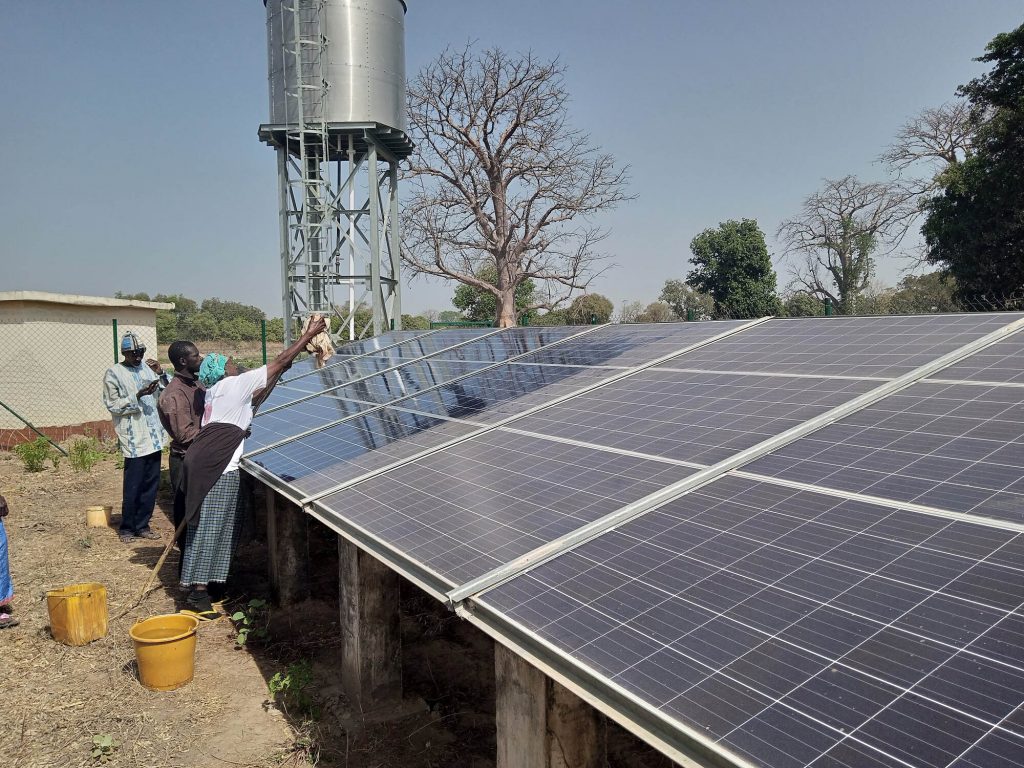In The Gambia, most rural people do not have enough water to meet their agricultural and domestic needs. For this reason, the Food and Agriculture Organization of the United Nations (FAO) is installing 34 solar-powered irrigation systems in the West African country. These are boreholes equipped with solar pumps that fill tanks with filtration systems, providing clean water for irrigation as well as domestic and livestock use.
Read also-WEST AFRICA: PAFAO launches a call for family farming projects
These schemes will benefit 6,600 farmers to build their resilience to the effects of climate change. They have also been trained in cleaning, monitoring and troubleshooting solar PV systems. “Some of us used to wake up between 3 and 4 am just to fetch water. The hyenas attacked us three times. We had to endure all these challenges to be able to water our crops and find time for chores at home,” says Salla Bah, a market gardener in the Central River region of northern Gambia.
The FAO initiative is supported by the Gambian Ministry of Agriculture and funded by the European Union (EU) and the Global Environment Facility (GEF). Ultimately, the project will increase agricultural yields and food security for the population.
Benoit-Ivan Wansi
